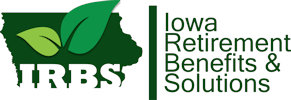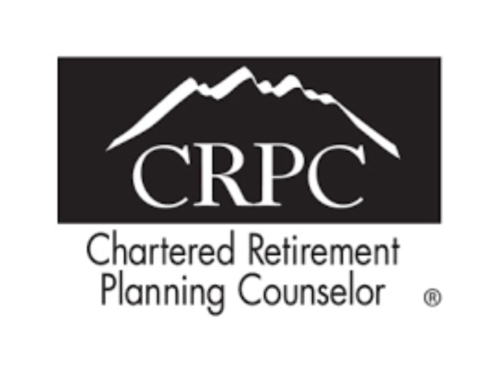Your Retirement Questions—Answered
Understanding Your Pension Options
Posted by Morgan Fisher
Serving Cedar Rapids, Iowa, and Surrounding Areas.
Your Retirement Questions—Answered
At Iowa Retirement Benefits and Solutions, we regularly receive a wide range of retirement-related questions from both long-time clients and new faces. These conversations often spark the beginning of a personalized retirement strategy—one that reflects your unique goals, lifestyle, and priorities.
Below are some of the most frequently asked retirement questions we hear, along with our perspective on each. Keep in mind—many answers depend on your personal situation, which is why we’re always here to help you explore what’s best for you. 
Financial Questions
How much money do I need to retire comfortably?
This depends on how you envision your retirement. Will you be traveling? Picking up new hobbies? Helping with grandkids or hiring help around the house? We’ll work together to assess your current expenses, lifestyle goals, and income streams to come up with a number that makes sense for you. Find more info on this topic here.
When should I start taking Social Security?
There’s no one-size-fits-all answer here. If you’re in good health and anticipate a long retirement, waiting a few years can mean larger monthly benefits. If you need income sooner or have health concerns, claiming earlier may make more sense. It’s all about striking the right balance.
How do I make sure I don’t outlive my savings?
This is a top concern—and rightly so. The key is smart planning. We’ll look at your guaranteed income sources, anticipated expenses, and create a tailored withdrawal strategy that helps your money last. Regular check-ins and plan adjustments also help keep things on track as life evolves.
Should I roll over my 401(k) to an IRA?
In many cases, rolling over to an IRA offers more control and potentially lower fees. But the best decision depends on your specific employer plan, fees, and future goals. Let’s weigh the pros and cons together.
How will taxes affect my retirement income?
Retirement doesn’t mean you stop paying taxes—and different income sources are taxed differently. That’s why tax planning is such a critical part of your retirement strategy. We’ll help you minimize tax surprises so you can keep more of what you’ve worked so hard for.
What’s the best withdrawal strategy?
Some retirees use the 4% rule, while others prefer a bucket strategy that separates money into short-, mid-, and long-term categories. We’ll help you figure out the approach that aligns with your goals, comfort level, and income needs.
Do I need to worry about Required Minimum Distributions (RMDs)?
Absolutely. If you have traditional IRAs or 401(k)s, the IRS requires you to start withdrawing a set amount each year once you hit a certain age. We’ll help you plan for these withdrawals so they don’t disrupt your overall strategy—or create an unexpected tax bill.
How should I invest in retirement—safe or growth-focused?
A mix of both is often best. You may still need growth to combat inflation, but you’ll also want safer, income-generating investments for stability. The right balance depends on your risk tolerance and time horizon.
Health & Insurance Questions
What’s the difference between Medicare Parts A, B, C, and D?
It’s a bit of an alphabet soup, but here’s a quick rundown:
-
Part A: Hospital coverage
-
Part B: Doctor visits and outpatient services
-
Part C: Medicare Advantage (a bundled plan with extras)
-
Part D: Prescription drug coverage
Choosing the right combination depends on your health needs and preferences.
What does long-term care insurance cover, and do I need it?
Long-term care insurance helps pay for services like nursing homes, assisted living, or in-home care—things Medicare typically doesn’t cover. Whether you need it depends on your assets, health history, and desire to protect your savings from future care costs.
What if I retire before 65 and don’t have Medicare yet?
You’ll likely need temporary coverage until Medicare begins. This could include COBRA, private insurance, or ACA marketplace plans. We’ll help you find the most affordable, comprehensive solution for your gap years.
Legal & Planning Questions
Do I need a Will or a Trust?
Yes—everyone should have at least a basic estate plan. A Will ensures your wishes are followed, while a Trust can help avoid probate and provide more control over how your assets are distributed. We’ll help you determine what’s right for your situation.
What legal documents should I have?
In addition to a Will or Trust, you’ll want to have:
-
A Durable Power of Attorney (financial)
-
A Healthcare Power of Attorney
-
A Living Will or Advance Directive
These documents ensure your wishes are honored and loved ones can step in if needed.
How can I minimize estate taxes for my heirs?
Smart planning today can save your family a lot tomorrow. Strategies like Roth conversions, charitable giving, and trusts can help reduce or even eliminate estate taxes. We’ll help you explore the options that fit your goals.
Who should I talk to—a financial planner, estate attorney, tax advisor?
Ideally, all three! Each plays a key role in building a secure retirement. We work as a team with other professionals to make sure all the pieces of your plan work together seamlessly.
Let’s Build Your Plan Together
If any of these topics hit home—or sparked new questions—we’d love to help you explore them further. Our team at Iowa Retirement Benefits and Solutions is here to support you every step of the way.
Email us at info@iowaretirementsolutions.com
Call us at 319-423-3332
Click here to schedule your free consultation.
Let’s build a retirement that reflects your values, goals, and dreams.
Investment advisory services are offered through Fusion Capital Management, an SEC registered investment advisor. The firm only transacts business in states where it is properly registered or is excluded or exempted from registration requirements. SEC registration is not an endorsement of the firm by the commission and does not mean that the advisor has attained a specific level of skill or ability. All investment strategies have the potential for profit or loss.




